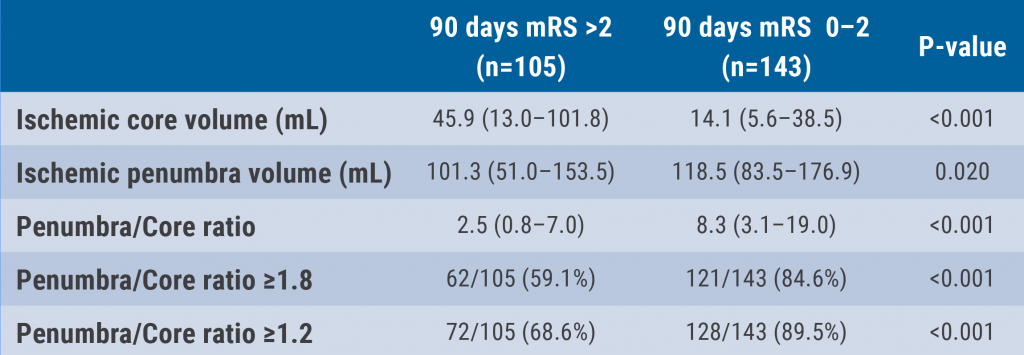"Endovascular thrombectomy became standard of care in 2015 and showed a really powerful treatment effect that has changed the lives of stroke patients all over the world," Dr. Mayank Goyle of the University of Calgary, writing committee chair, told Reuters Health by email. "Since then, we and others have been studying various sub-groups...Patients with pre-existing disability were not included in the trials based on inclusion/exclusion criteria."
The new statement, which provides an expert analysis of current research, was published in Stroke.
"Several observational studies, both case series and registry-based studies, have helped demonstrate the comparable safety of endovascular therapy in patients with premorbid disability or dementia and in those without, complementing similar data on thrombolysis," Dr. Goyle and colleagues write.
To facilitate decision-making, the statement suggests that clinicians take the following steps:
Pre-stroke, in the non-acute setting:
- Discuss quality of life concerns and future care preferences with patients and families
- Encourage advance care planning for future emergencies like major stroke
- Examine personal biases that may influence treatment decision-making in time-pressured situations
In the acute (time-critical) setting:
- Acknowledge the spectrum of possible post-stroke outcomes; avoid thinking in terms of "good" or "bad" outcome
- Disclose the uncertain state of evidence about the magnitude of treatment effects in this population
- Disclose the potential risks of treatment, such as the high mortality compared to patients without pre-stroke disability/dementia
- Avoid routinely withholding therapies solely on the basis of pre-morbid status
- Adopt patient-centered care strategies as far as possible: seek to understand what the patient would value in such situations, recognizing this will vary by age, ethnicity, religious beliefs, etc. and will be challenging to achieve meaningfully in this setting
In the post-acute setting:
- Recognize that the patient's outcome will depend not only on the immediate treatment decision, but also on the quality of the stroke unit's care and rehabilitation
- Consider the patient's goals of care going forward that may be influenced by the decision to treat -e.g., anticipated need for intubation and intensive care unit admission after endovascular therapy (EVT)
Dr. Goyle noted that in situations where caregivers and patients disagree on the value of treatment, "clinicians should provide a fair and transparent picture of various treatment options and acknowledge currently available data and evidence, but in addition, also acknowledge current knowledge gaps and help patients and their families reach an informed decision."
Dr. Stacie Demel, assistant professor of clinical neurology and rehabilitation medicine in the University of Cincinnati College of Medicine in Ohio, commented on the position statement in an email to Reuters Health.
"There is often a discrepancy in the amount of risk one is willing to take when offering IVT (intravenous thrombolysis) versus EVT, which isn't directly addressed in these guidelines," she said. "In real-world practice, treatment with IVT rarely takes premorbid disability or dementia into account, with the exception of explicit direction from a proxy or available advanced directives."
"However, the discussion is inherent to nearly every EVT decision," she noted. "Prior to referring a patient for EVT, an understanding of a patient's baseline functional status plays a central role in the decision regarding taking a patient for (the) procedure."
"Blindly excluding patients with physical disability or dementia will result in inequitable stroke treatment across populations," she added. "However, in lieu of strong evidence to either treat or defer treatment, it is the obligation of the treating physician to be cognizant of bias and to engage and educate the patient and/or the family in decision making. Furthermore, it is also strongly worth advocating to patients with disability or dementia and their families to discuss and document their wishes in a non-emergent setting."
SOURCE: https://bit.ly/3v4EIFZ Stroke, online March 28, 2022.
By Marilynn Larkin
Posted on
Previous Article
« Eisai seeking accelerated FDA review of Alzheimer’s drug after U.S. coverage decision Next Article
Lymph node ratio helpful for adjuvant-chemo planning in gastric cancer »
« Eisai seeking accelerated FDA review of Alzheimer’s drug after U.S. coverage decision Next Article
Lymph node ratio helpful for adjuvant-chemo planning in gastric cancer »
Related Articles

August 22, 2022
Acute stroke management: from time window to tissue window?
© 2024 Medicom Medical Publishers. All rights reserved. Terms and Conditions | Privacy Policy

